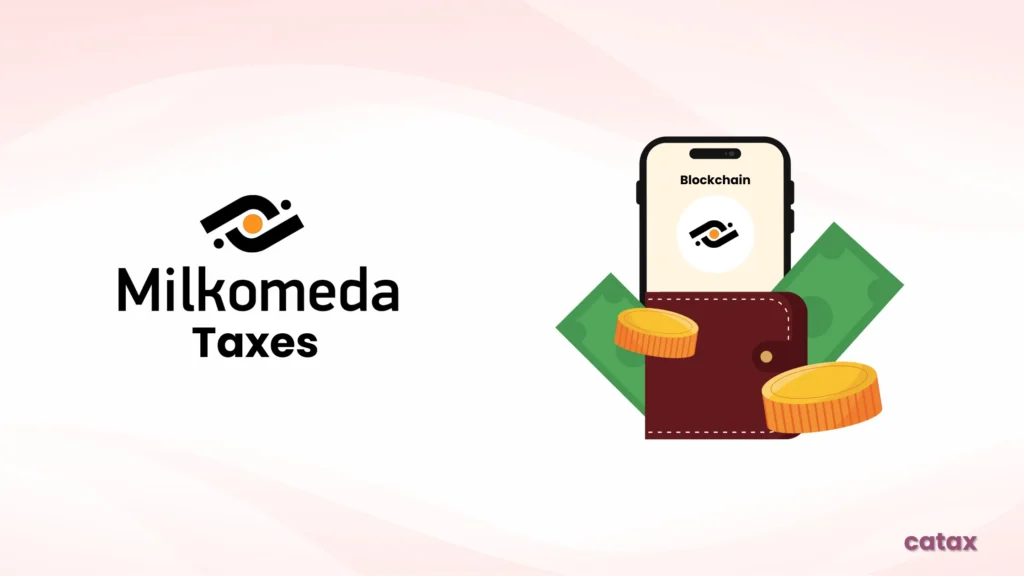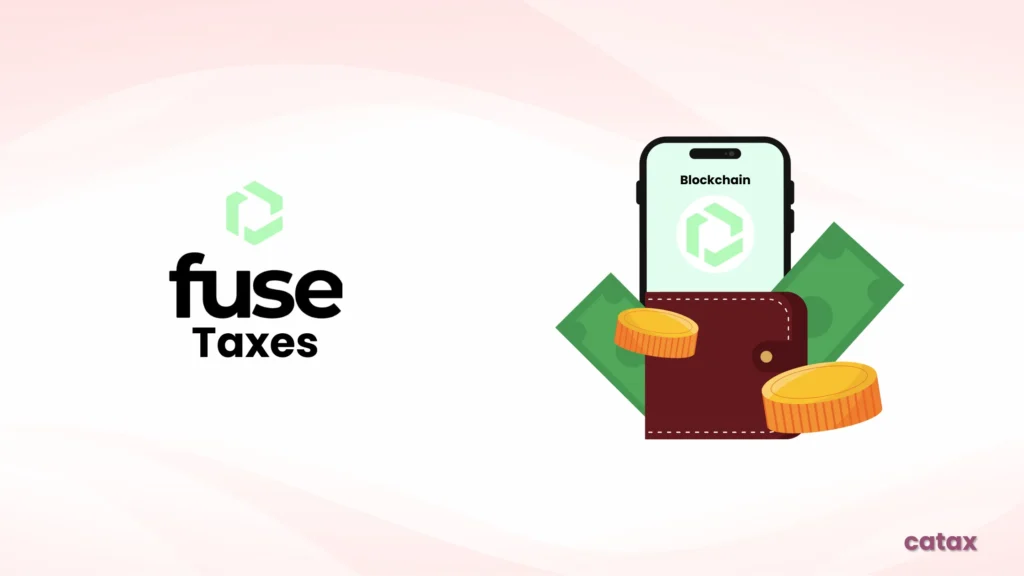Cryptocurrency tax rules vary by country, and VeChain (VET) taxes transactions may be taxed differently depending on local regulations. Whether you buy, sell, trade, or stake VET, understanding how tax authorities classify these activities helps you stay compliant and avoid penalties.
This guide simplifies VeChain tax rules so you can manage your taxes confidently and stay on the right side of the law.

- How to Connect Your VeChain Wallet to Catax
- Are VeChain (VET) Transactions Taxable?
- Can You Deduct Trading Fees and Other Costs?
- How Is VeChain (VET) Taxed Based on Holding Period?
- How Is Staking Income Taxed?
- How Countries Tax VeChain Staking Rewards
- Can You Claim VeChain (VET) Losses for Tax Benefits?
- How to Stay Compliant with VeChain (VET) Tax Rules
How to Connect Your VeChain Wallet to Catax
To track your VeChain (VET) transactions and calculate taxes effortlessly, follow these steps to connect your wallet to Catax:
- Open your VeChain wallet or access a block explorer (such as VeChainThor Wallet, Sync, or any supported wallet).
- Copy your public wallet address from your VeChain wallet.
On Catax:
- Log in to Catax and select your country.
- Select Chain, then search for VeChain Wallet.
- Paste your public address and click Connect.
Once connected, Catax will automatically track your VET transactions and simplify your crypto tax reporting.
Calculate My Taxes ➤Are VeChain (VET) Transactions Taxable?
Yes, in most countries, VeChain (VET) transactions are taxable. Tax authorities may classify VET as a capital asset, property, or income—depending on how it’s used.
When Do You Have to Pay Taxes on VeChain (VET)?
You may need to pay taxes in the following situations:
- Selling VET for a profit – If you sell your VET tokens for more than you paid, the gains are typically subject to capital gains tax.
- Trading VET for another crypto – Exchanging VET for tokens like ETH, BTC, or any other crypto may be a taxable event.
- Using VET for purchases – Spending VET on goods or services could trigger a taxable gain if the token has increased in value since acquisition.
- Earning VET through staking or rewards – Any VET earned via staking, node rewards, or other incentives is often considered income and taxed upon receipt.
- Receiving VET as payment – If you’re paid in VET, it’s generally taxed as income based on the token’s fair market value at the time you received it.
Can You Deduct Trading Fees and Other Costs?
Yes, depending on your local regulations, you may be able to deduct certain expenses related to VET:
Some countries allow deductions for:
- Trading fees from buying/selling VET
- Network/transaction fees when moving VET
- Security expenses (e.g., hardware wallets)
Others only allow deduction of:
- Deduction of your original purchase cost (cost basis), with limited or no deductions for fees or additional tools.
Check your local tax code or consult a tax professional for clarity.
How Is VeChain (VET) Taxed Based on Holding Period?
Tax rates on VET gains can differ depending on how long you held the tokens:
- Short-term holdings (less than one year): Often taxed at your regular income tax rate.
- Long-term holdings (more than one year): Many countries offer reduced rates for long-term capital gains.
- Flat-rate jurisdictions: Some regions apply a fixed tax rate regardless of holding period.
Understanding your country’s specific tax laws can help you build a more efficient crypto tax strategy.
You can also check out our Country-Specific Guide for Crypto in Your country. This guide provides insights on regulations, tax implications, and compliance measures breifly explained for each country.
How Is Staking Income Taxed?
VeChain staking or reward mechanisms (such as holding VET to earn VTHO) can generate passive income—but tax treatment varies by country. Some tax authorities require you to pay taxes as soon as you receive the rewards, while others only tax you when you sell or use them.
How Countries Tax VeChain Staking Rewards
- Taxed as income – In many countries, staking or node rewards (like VTHO) are treated as regular income. You’re taxed at the time you receive them, based on their market value.
- Taxed as capital gains – Some jurisdictions tax staking rewards only when you sell them. In this case, you’re taxed only on the gain you make from the sale.
If you stake vechain, knowing when taxes start helps you prepare for tax payments. Some countries tax staking rewards even if you don’t sell them.
To avoid surprises, check how staking rewards are taxed in your country before staking VeChain .
Can You Claim VeChain (VET) Losses for Tax Benefits?
Not every VET trade leads to profit—and in many countries, selling at a loss can help reduce your taxable income.
Here’s how countries may treat crypto losses:
- Loss offsets – Some countries allow you to subtract VET losses from your crypto gains, so you’re only taxed on your net earnings.
- Loss carryforward – If you don’t have any gains this year, you might be allowed to carry your losses forward to future tax years.
- Limited deductions – In some regions, crypto losses are not deductible, which means they won’t reduce your tax bill.
Keeping detailed transaction records helps you report losses correctly and get tax benefits where allowed.
How to Stay Compliant with VeChain (VET) Tax Rules
As global crypto tax laws continue to evolve, staying compliant is essential. Here’s how to manage your VeChain taxes effectively:
- Understand how your country taxes VET – Know whether your gains are treated as capital gains, income, or business earnings.
- Track expenses and potential deductions – Trading fees, wallet security tools, and staking costs may be deductible, depending on local laws.
- Use a crypto tax tool like Catax – Catax makes it easier to import wallet data, track transactions, and calculate your tax obligations automatically.
- Consult a tax advisor – A tax professional can help you interpret complex rules and file correctly based on your location.
Stay informed and organized to handle Cosmos taxes smoothly and responsibly.


